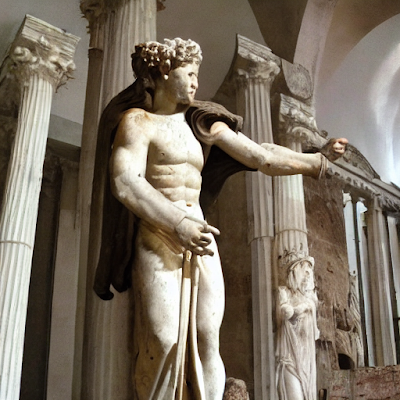Understanding the Myths and Legends Regarding the Roman Gods
Understanding the Myths and Legends Regarding the Roman Gods - The ancient civilization of Rome was a polytheistic society that worshiped a pantheon of gods and goddesses, each with their own unique stories, personalities, and powers. These gods played a significant role in the everyday lives of the Romans, who believed that they influenced everything from weather patterns and crop yields to personal success and happiness.
Despite the decline of the Roman Empire, the myths and legends surrounding these gods continue to captivate the imaginations of people around the world, and many of their stories have been passed down through the generations and incorporated into modern cultures.
One of the most well-known Roman gods is Jupiter, the king of the gods and the god of the sky and thunder. Jupiter was considered the protector of the Roman people and was depicted as a powerful and regal figure, often holding a thunderbolt in his hand. According to legend, Jupiter was the son of Saturn, the god of time, and was born on the same day that Saturn was overthrown by his children. Jupiter went on to defeat the Titans and become the ruler of the gods and the universe.
Another important god in the Roman pantheon was Mars, the god of war. Mars was depicted as a fierce warrior, often wearing armor and carrying weapons, and was associated with courage, strength, and bravery. The Romans believed that Mars was responsible for guiding soldiers into battle and helping them to achieve victory. He was also worshiped as the god of fertility, as it was believed that he played a role in the growth and harvest of crops.
Venus, the goddess of love, beauty, and fertility, was also highly revered by the Romans. Venus was depicted as a stunningly beautiful woman, often holding a mirror or a rose, and was associated with the creation of life and the celebration of love and sexuality. Her son, Cupid, was the god of desire and was believed to shoot arrows into the hearts of people, causing them to fall in love.
Another famous Roman god was Mercury, the messenger of the gods and the god of commerce, trade, and travel. Mercury was depicted as a young man wearing a winged cap and sandals and was known for his speed and agility. He was considered the patron of merchants, traders, and travelers, and was believed to help ensure the safe and successful journeys of those who worshiped him.
The Roman goddess of the hearth and home, Vesta, was also considered a significant figure in the pantheon. Vesta was believed to protect the home and family, and was depicted as a young woman holding a flaming torch. The Romans built a temple in her honor, where a sacred fire was kept burning at all times, symbolizing the warmth and security of the home.
In addition to the major gods and goddesses, the Roman pantheon also included a number of minor gods and spirits, each with their own unique powers and personalities. Some of these included Faunus, the god of the countryside and wild animals; Bacchus, the god of wine and parties; and Neptune, the god of the sea. These gods and spirits played a role in the everyday lives of the Romans, and were honored with festivals and celebrations throughout the year.
One of the most fascinating aspects of the Roman gods is the way in which their myths and legends have been incorporated into modern cultures and beliefs. For example, the story of Venus and Cupid has been a popular subject for artists and writers for centuries, inspiring countless works of art, literature, and music. Similarly, the story of Jupiter and his defeat of the Titans has been reinterpreted in various forms in different cultures and has even been referenced in works of science fiction and fantasy.
In conclusion, the myths and legends surrounding the Roman gods continue to captivate the imaginations of people around the world, nearly two thousand years after the decline of the Roman Empire. These gods and goddesses represented a diverse range of aspects of life, from love and beauty to war and commerce, and played an important role in the everyday lives of the Romans.
Today, their stories have been reinterpreted and adapted in countless ways, but their legacy lives on as a testament to the enduring appeal of classical mythology and the power of storytelling. Whether it's through literature, art, music, or popular culture, the myths and legends of the Roman gods continue to inspire and influence people all over the world, reminding us of our shared cultural heritage and the timeless power of the human imagination.


Comments
Post a Comment